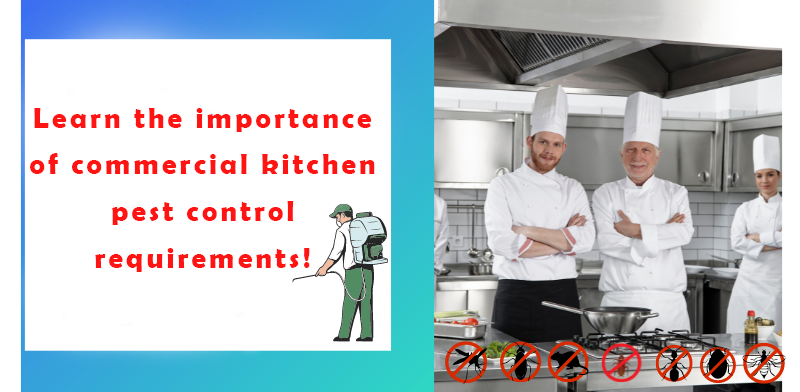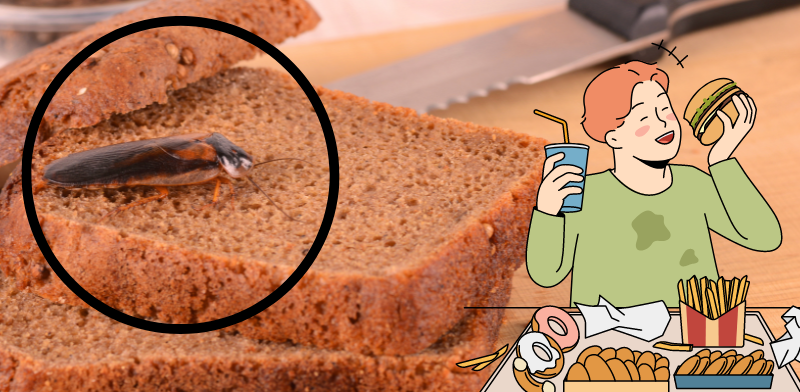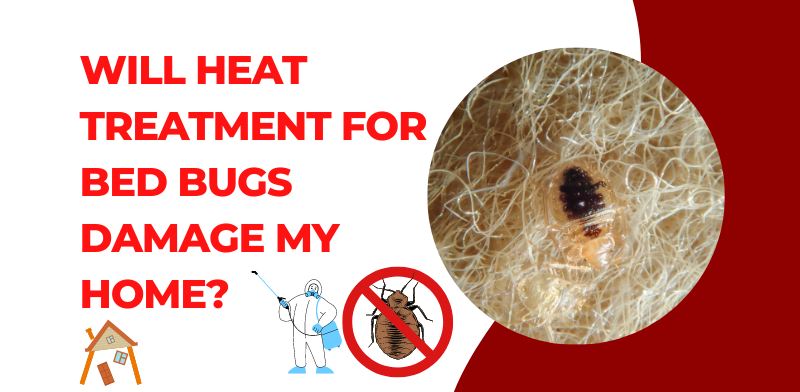
What is commercial kitchen pest control required?
The food preparation and housekeeping staff put much effort into providing wholesome cuisine and a pristine setting. If you are a restaurant owner your reputation may be permanently harmed by the presence of pests since you run the danger of losing clients. Being in compliance with the food act hygiene and customer safety is crucial, in addition to treating the food in the restaurant in a way that does not invite a pest infestation. In school commercial kitchens it is most important because the kid’s health become at risk. If you don’t follow this, it might have significant repercussions on your company’s reputation as well as put it on a blacklist and put it in the public eye. Let’s learn more about commercial kitchen pest control requirements.
Importance of commercial kitchen pest control
For a number of reasons, pest control is crucial in commercial kitchens and eateries.
- All food facilities must be free of pests, rodents, pollutants, and the environments that they prefer to live in, according to laws enforced by the majority of countries’ food inspection agencies. In addition, they must prevent pests from entering the building.
- You are shielded from needless income loss. Restaurants and commercial kitchens are profitable industries. Once pests have taken over your restaurant, you’ll start to lose clients, which will eventually result in a significant decline in revenue.
- It helps your business avoid potential food poisoning caused by bugs contaminating food with bacteria and illnesses.
- It supports establishing or repairing your company’s reputation.
How you can control pests in commercial kitchens?
A business kitchen and restaurant might be threatened by a variety of pests. It is well-recognized that cockroaches, rodents, and flies aid in the transmission of illness. Anywhere there is a supply of food and water, these pests will all move in. Here are a few things you might do to reduce the likelihood of an infestation,
- Secure windows and doors with insect-resistant meshes.
- To keep pests out, cracks and gaps in the walls, floors, and ceilings must be sealed.
- Before carrying the food into the restaurant, dispose of any surplus food packing materials.
- Strictly prohibiting animals from entering the dining area or kitchen.
- To keep odors within the box and lessen pest attraction, store all food in tightly closed, pest-proof containers.
- Make sure that areas that are difficult to access, such as behind and beneath appliances, are tidy and debris-free.
- Keep kitchen appliances that are difficult to move on rollers to make cleaning around them simpler.
- Make sure there are no leaks, leaky faucets, or standing water.
- Keeping food closed while using fly spray on a regular basis.
In conclusion, Due to the negative consequences that pests have on their company, many restaurant and commercial kitchen owners take necessary action to keep their establishments pest-free. if the basic precaution does not react to pest control, it is better for you to occasionally engage pest control services to apply pest infestation treatments for the business solutions.

